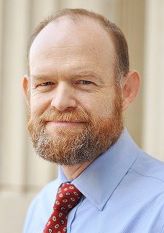
DALLAS (BP) — The day of Jesus’ resurrection has always been an orienting point for Christians. From the beginning, it was the day for their weekly gatherings. Later it became a pivotal day in the annual Christian calendar.
Prior to Easter each year, we reflect on Jesus’ perfect submission — from His victory over Satan’s temptations in the wilderness to His ultimate act of obedience on the cross. We examine our own devotion and deal intentionally with the temptations and distractions that keep us from full obedience.
Then, on Easter, the commemoration of Jesus’ resurrection pivots us from contemplating the humility of the suffering Lamb to celebrating the power of the risen Lamb; from identifying with the crucified Servant to exalting the victorious Savior.
This shift is rooted in the events that occurred on the very day of Jesus’ resurrection, beginning with the question posed to the women who went to His tomb: “Why are you looking for the living among the dead?”
It is true that the question had something to do with their location at the tomb. Luke reports, however, that the women had “inclined their faces to the ground” and that this posture prompted the messengers’ question. Why? Because early Christians knew they lived in a world governed by the words of Genesis 3:19: “You will eat food by the sweat of your brow until you return to the ground, since you were taken from it; for you are dust, and you will return to dust.” The women’s posture that morning was entirely reasonable in light of these words. Each and every body laid in a tomb would return to the ground, the dust.
A change had occurred that morning, however, that the women’s posture did not reflect. Jesus’ resurrection had brought about a new posture. The women should not be inclined toward the ground looking for Jesus but standing and facing Him as their risen Lord.
Easter posture is not, however, merely standing and facing the resurrected Lord. It is standing and facing our future because of His resurrection.
Forty days prior to Easter, some Christians have ash placed on their foreheads and hear the words: “Remember that you are dust and to dust you shall return.” They are reminded of the brevity of life and the urgency of present obedience.
If you have been to a funeral this past year, you don’t need an ashen symbol to remind you of the brevity of life or that death still grips creation. As you inclined your face toward the body that was to be placed in the ground, you were confronted with the fact that this is not how God created that person. The eulogies testified to the fact that there is no one in the world who spoke, sang, laughed or loved like the one whose body lay in the casket.
It is at just this point where the women’s lesson is vital for us because the Easter posture is a posture of hope. Death results in the body returning to the ground — for now. Sorrow and grief are real — for now. Because of Jesus’ resurrection, however, we can stand and face our future with hope. The apostle Paul says it this way: “But now Christ has been raised from the dead, the firstfruits of those who have fallen asleep. For since death came through a man, the resurrection of the dead also comes through a man. For as in Adam all die, so also in Christ all will be made alive. But each in his own order: Christ, the firstfruits; afterward, at His coming, those who belong to Christ” (1 Corinthians 15:20-23).
Are you struggling to face your future? Maybe you have experienced a great tragedy in your life: the death of a friend or family member, a diagnosis of a terminal disease. Maybe the loss of someone or something that has provided security has shaken your confidence in the future: the betrayal of a close friend or spouse, the loss of a job. Maybe anxiety is just your persistent struggle; you struggle to face the future even in the absence of crises.
The question is good for you to hear: Why do you seek for the living among the dead?
Allow the fact of Jesus’ resurrection to give you the confidence to face your future. With His resurrection in mind, stand up and face your future with hope.















